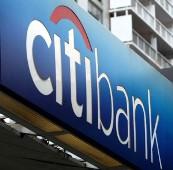 A Citibank branch manager in New Delhi has been ordered by the Delhi State Consumer Commission to pay Rs 15 lakhs (Rs 1.5 million) as compensation to a credit card holder for leaking his account details to a third party.
A Citibank branch manager in New Delhi has been ordered by the Delhi State Consumer Commission to pay Rs 15 lakhs (Rs 1.5 million) as compensation to a credit card holder for leaking his account details to a third party.
The State Consumer Commission awarded the damages saying the supply of credit card statement details of the card holder to a third party is a 'violation of confidential relationship' between the bank and its customer and "betrayal of trust."
"It appears that in the case, the copies of account of the complainant were produced before the civil court.
"Such accounts are universally treated as confidential account and are not supposed to be supplied to any one without prior approval of the account holder...
"The availability of the said account to a third party, which produced it in the civil court, is therefore a flagrant violation of confidential relationship between a bank and a customer and a betrayal of trust, which not only calls for alarm and dismay but also adequate financial compensation," said the bench presided by Justice Barkat Ali Zaidi.
The commission
"The opposite party 1 who is the branch manager has, therefore, to be held responsible for the leakage," it said, adding "opposite party 1 Hemant Kumar, Branch Manager, Citibank, will pay Rs 15,00,000 as compensation to the complainant (Amit Mittal)."
Delhi resident Mittal, in his complaint, had alleged that bank officials had unauthorisedly and illegally leaked details of his credit card account statements to a third party who, in turn, had produced it before a civil court in a private dispute.
The branch manager in his defence had contended that no information was leaked from the bank and that the complaint is not maintainable as Citibank was not made a party.
The commission, however, rejected the contention saying that as the account details found their way to a civil court, "it clearly indicates that they were leaked from the Bank".
It also rejected the argument that the bank was not made a party in the complaint saying "the person who is responsible for such leakage is primarily responsible."










 © 2025
© 2025